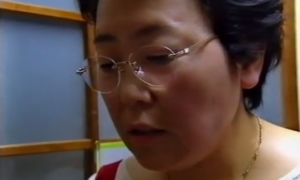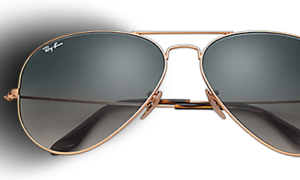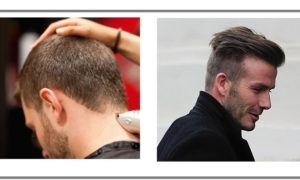In addition to raising millions of dollars a year for breast cancer research, fundraising giant Susan G. Komen for the Cure has a lesser-known mission that eats up donor funds: patrolling the waters for other charities and events around the country that use any variation of “for the cure” in their names.
So far, Komen has identified and filed legal trademark oppositions against more than a hundred of these Mom and Pop charities, including Kites for a Cure, Par for The Cure, Surfing for a Cure and Cupcakes for a Cure—and many of the organizations are too small and underfunded to hold their ground.
“It happened to my family,” said Roxanne Donovan, whose sister runs Kites for a Cure, a family kite-flying event that raises money for lung cancer research. “They came after us ferociously with a big law firm. They said they own ‘cure’ in a name and we had to stop using it, even though we were raising money for an entirely different cause.”
Donovan’s sister, Mary Ann Tighe, said the Komen foundation sent her a letter asking her to stop using the phrase “for a cure” in their title and to never use the color pink in conjunction with their fundraising. What bothered her most about the whole ordeal, she said, was that Komen forced her to spend money and time on legal fees and proceedings instead of raising funds for cancer.
“We were certainly taken aback by it,” she told HuffPost. “We have partners running these kite events around the country. What if one of them uses, say, magenta? Is that pink? I mean, where are we going with this? We just want to raise money for cancer. What we don’t want is to have our energy misplaced by having our charity partners trying to police the good work that we’re doing.”
Sue Prom, who started a small dog sledding fundraiser for breast cancer called “Mush for the Cure” in Grand Marais, Minn., said she was shocked to hear from Komen’s lawyers this summer asking that she change the name of her event or face legal proceedings.
“I had to call the trademark helpline, because I had no idea what I was doing,” said Prom, who runs the annual sled race with her husband and friend. “We pay for the expenses out of our pockets, and we’ve never personally made a dime from it. We have t-shirts, sweatshirts, domain names, posters, stationery, all with ‘Mush for the Cure’ on it. What do we do with all the materials now? How are we gonna defend ourselves? We’re not like Komen.”
Prom said she’s been running the event for six years, and the most she has raised for the National Breast Cancer Foundation is $25,000. Before the NBCF could accept the money, they warned her to file for a trademark to protect her event legally against the Komen Foundation. But now that Komen has opposed Mush’s trademark application with the U.S. Patent and Trademark Office, Prom is looking for a pro bono lawyer to help her figure out what to do next.
“I think it’s a shame,” she said. “It’s not okay. People don’t give their money to the Komen Foundation and they don’t do their races and events so that Komen can squash any other fundraising efforts by individuals. That’s not what it’s about.”
Komen’s general counsel, Jonathan Blum, told HuffPost that the fundraising powerhouse tries to be reasonable when dealing with small charities and nonprofits, but that it has a legal duty to protect its more than 200 registered trademarks.
“It’s never our goal to shut down a nonprofit,” he said, “and we try very hard to be reasonable, but it’s still our obligation to make sure that our trademarks are used appropriately so there’s no confusion in the marketplace over where people’s money is going.”
Blum told HuffPost that legal fees comprise a “very small part” of Komen’s budget, but according to Komen’s financial statements, such costs add up to almost a million dollars a year in donor funds.
“I think it’s important that charities protect their brand, but on the other hand, I don’t think the donors’ intent in giving their money was to fund a turf war,” said Sandra Minuitti, a spokesperson for Charity Navigator. “It’s very important that Komen treads carefully and is very transparent about how they’re spending money on these legal battles.”
Michael Mercanti, an intellectual property lawyer, said he is surprised by the large number of oppositions Komen has filed against other charities—a number he would expect from a company like Toys”R”Us or McDonalds, but not a charitable fundraising organization.
“They seem to be very aggressive in policing their mark, or what they’re claiming to be their mark,” he told HuffPost. “I guess there are a lot of ways to captain a ship, but it seems like there are ways they could protect and police their trademarks and also allow other charities to coexist.”
Mercanti said filing hundreds of oppositions is not only damaging to other charities, but could also be counterproductive for Komen’s brand.
“They could actually be seen as being a bully,” he said. “They’re going to alienate some donors who don’t appreciate them stepping on smaller, worthwhile charities.”
With the help of a team of pro bono lawyers, Kites for a Cure was able to reach a settlement with Komen: They agreed to only use the phrase “for a Cure” in conjunction with the words “lung cancer” to make the distinction clear. But Tighe said they reached a settlement only after many, many months of a free legal team working long hours each day.
“We were very fortunate because we had strong support from knowledgeable pro bono counsel, but it did seem like a misdirection of a lot of people’s energy,” she told HuffPost. “I don’t know what smaller organizations do without free representation.”
Sue Prom said Tighe has already put her in touch with her pro bono legal team, and she is prepared to fight for the name of her sledding event in court. The ordeal has changed her opinion of Komen.
“I used to give money to Komen all the time, but now I’m just kind of wary of them,” she said. “I’m not buying Yoplait yogurt or anything that has the word ‘Komen’ on it. They seem to have forgotten what charity is about.”




















